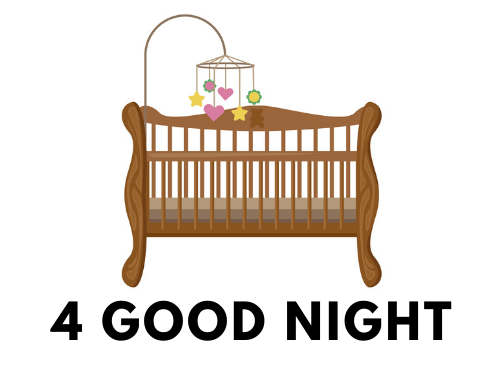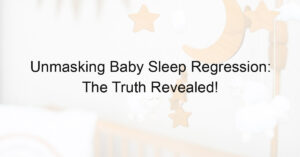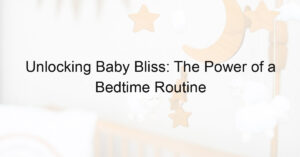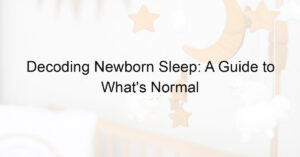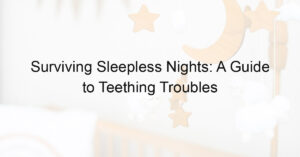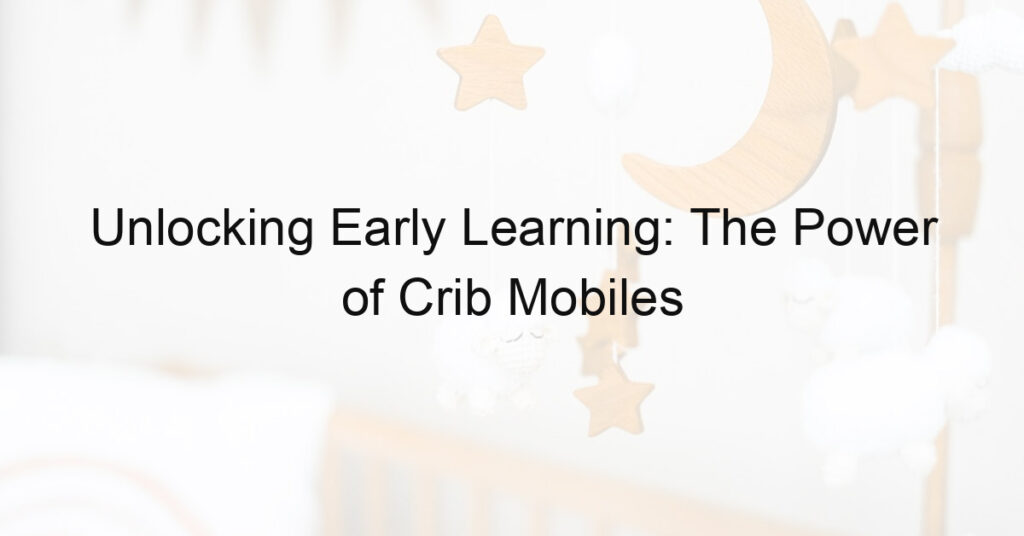If your baby cries while sleeping, it is important to remain calm and assess the situation. Firstly, check if your baby needs a diaper change or if they are uncomfortable due to being too hot or cold.
You should then gently stroke or pat their back until they settle back down. If this doesn’t work, you can try rocking them in your arms or placing them in their crib with gentle music playing.
You may even want to try swaddling them in a blanket as this can help soothe them into slumber.
If none of these strategies seem to be working, it may be time to consult your doctor;
they will be able to advise you on what steps you should take next and provide further guidance on how to help your baby sleep.
Remember that it’s important to remain calm and patient while trying to settle your baby into a peaceful sleep they will eventually get there!
With some perseverance, you can ensure that both you and your baby get the restful night’s sleep you deserve.
It may be helpful to keep track of when your baby is crying during naps or at night, as this will give you clues as to why they are having difficulty sleeping.
Common causes for distress could include teething pain, being hungry before bedtime, an uncomfortable sleeping environment (too hot/cold), or developmental milestones like learning something new.
Keeping a log of these events can help you identify patterns that could be impacting your child’s sleep.
No matter what the cause, it is important to consult with a doctor if your baby’s crying persists or gets worse.
The earlier any issues are addressed, the better chance you have of helping your little one get the rest they need.
With the right amount of care and attention, both you and your baby will soon be enjoying peaceful nights!
Is Letting Your Baby Cry To Sleep Harmful?
It is important to note that letting your baby cry themselves to sleep is not recommended, as this can be a source of stress for both you and your child.
Studies have shown that babies left to cry alone often become more distressed and agitated, which can lead to further problems with sleeping in the future.
Additionally, babies need comfort and nurturing when they are feeling anxious or upset.
Letting them cry on their own sends the message that they should resolve their issues without help, which can cause feelings of abandonment and insecurity.
Instead of leaving your baby alone when they cry at night, it’s best to try soothing methods like patting or rocking them until their distress has subsided.
Being comforted by a parent or caretaker will help babies to feel safe, secure, and loved — all of which are essential for good mental health and well-being.
In short, letting your baby cry themselves to sleep is never recommended.
If you’ve tried other methods of soothing and nothing seems to be working, talking with a doctor or sleep specialist can provide additional insight into what may be the underlying cause of your child’s sleeplessness.
They can also advise you on more effective strategies for helping your baby get the rest they need.
Good luck! With patience and understanding, you can ensure that both you and your little one have peaceful nights!
What Causes Night Terrors in Babies?
Night terrors are a type of parasomnia (or sleep disturbance) that can affect babies and young children.
During a night terror, the child may experience what appears to be extreme fear — they may cry out in distress, thrash around, or even scream or shout.
Although night terrors can be frightening for parents to witness, it is important to remember that they are not nightmares; the child does not become fully awake during these episodes.
The exact cause of night terrors is unknown, but some factors may increase the risk of them occurring.
Common triggers include fatigue and stress; if your baby isn’t getting enough sleep or feels anxious due to changes in their environment or routine, this can contribute to night terrors.
It is important to note that while they can be frightening and disruptive, night terrors are usually not harmful and do not cause any lasting effects.
Furthermore, most children will outgrow them by the time they reach school age.
If your baby has frequent night terrors, it is recommended to speak with your doctor for advice and support.
They may suggest lifestyle modifications such as going to bed earlier or using relaxation techniques before bedtime to help reduce the occurrence of these episodes.
Additionally, working with a sleep specialist can provide valuable insight into why your child may be experiencing these disturbances and how you can help them get the restful sleep they need.
At what Age Do Night Terrors Start?
Night terrors usually begin when a child is between 3-6 years old, although they can occur in younger babies as well. They tend to peak around 4-5 years old and are most common in preschoolers.
It is important to note that night terrors are not the same as nightmares — during a nightmare, the child will become fully awake, whereas with a night terror they remain asleep.
What Are Some Tips To Help Your Baby Sleep Better?
Establishing a consistent bedtime routine is one of the best ways to help your baby get more restful sleep.
The routine should include activities such as taking a warm bath or shower, reading stories, and cuddling before lights out.
Thanks For Reading.
